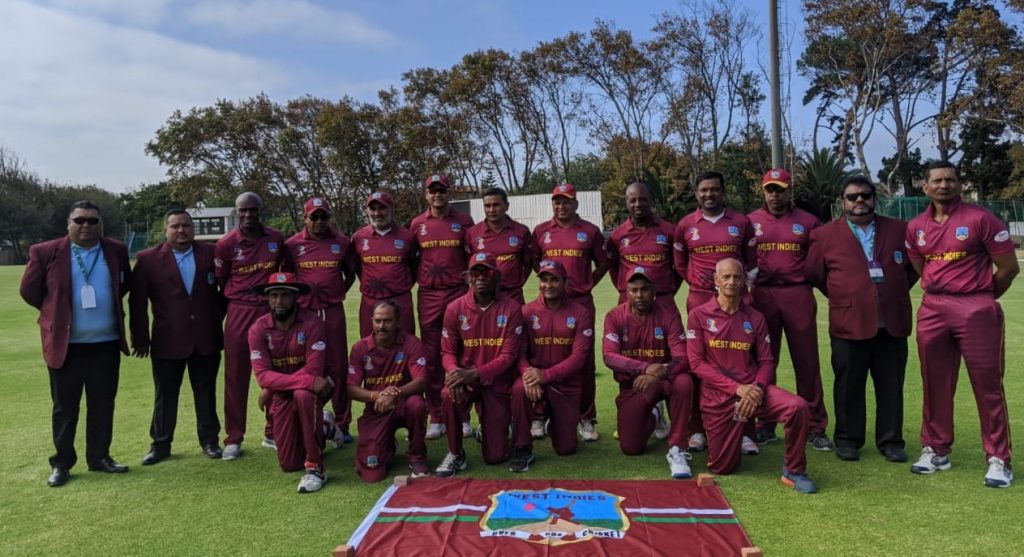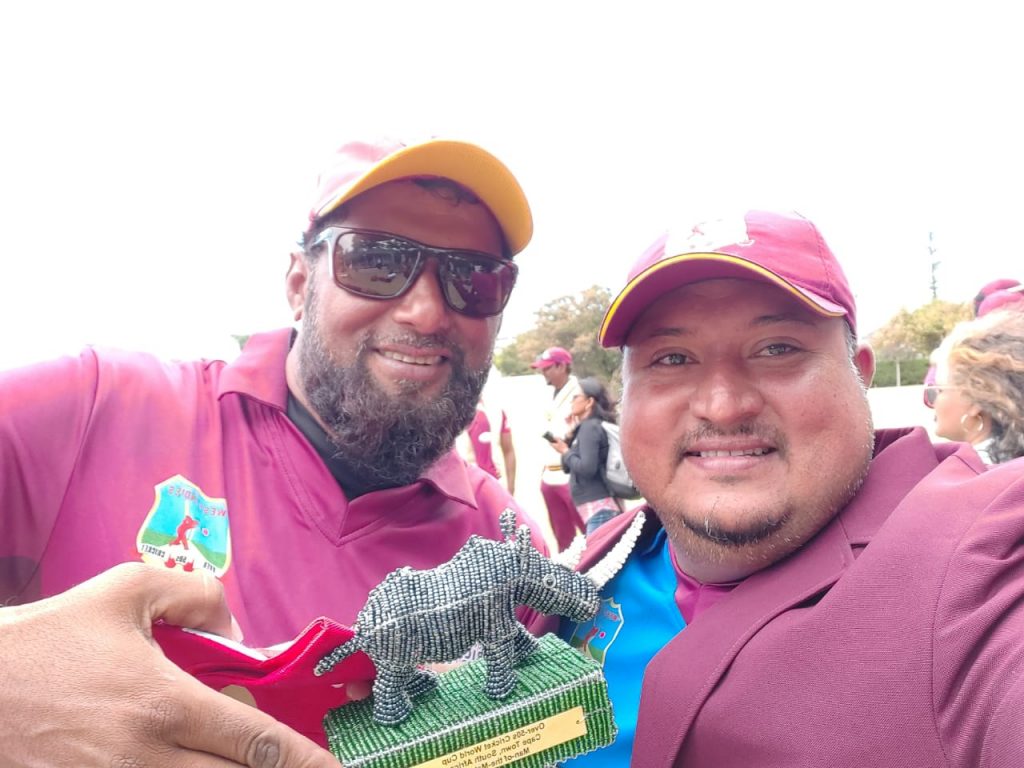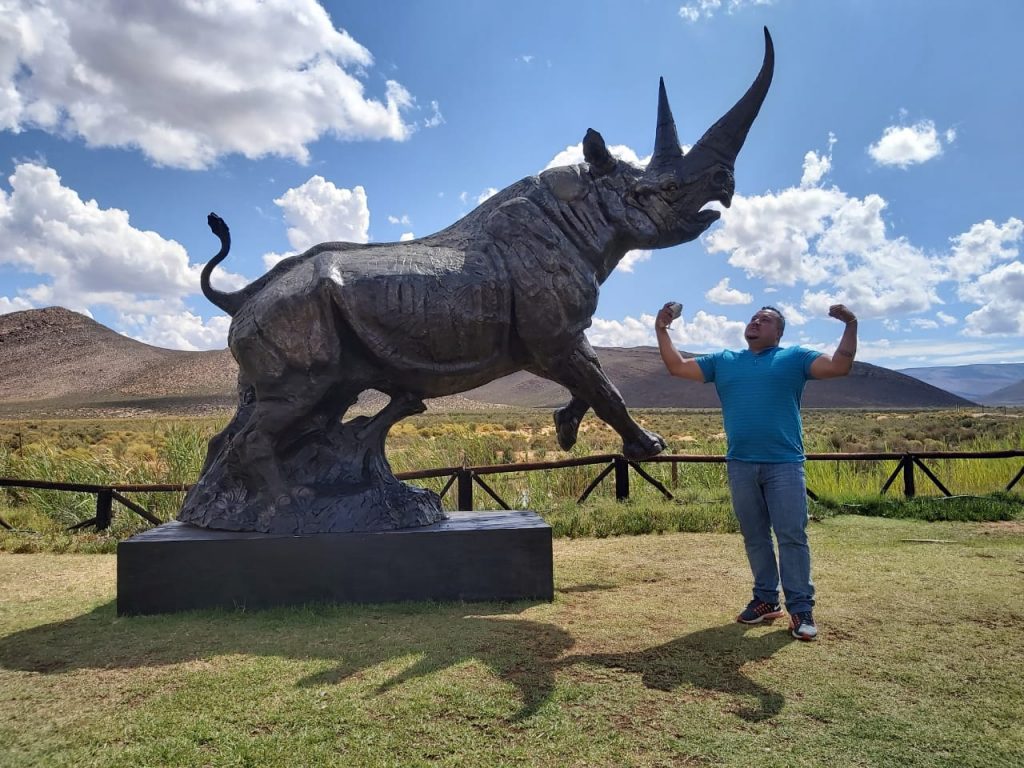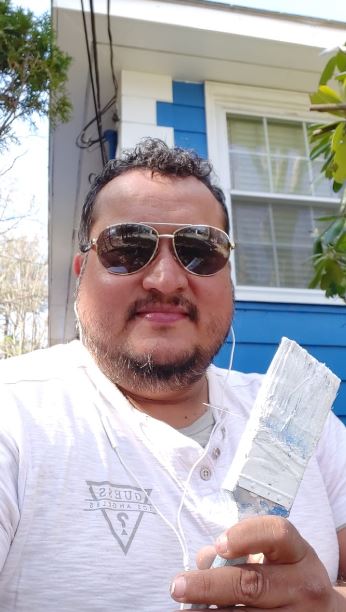By Avenash Ramzan
On March 5, 2020, cricket journalist John Michael Ramsingh departed Guyana via the Cheddi Jagan International Airport with much enthusiasm.
The hours of air travel, spanning two days, from Georgetown to John F. Kennedy International Airport in Queens, New York, then to Johannesburg and finally Cape Town, South Africa, were no deterrent for a man who is enjoying the good fortune of making his childhood fascination into a livelihood.
For him, such an arduous journey was nothing but a means to an end.
Appointed Media Manager of the West Indies team, set to feature for the first time in the Over-50 World Cup, Ramsingh was basically the team’s mouthpiece, doing commentary on the live stream, match summaries, articles, photography and even having a say in selection.
It’s a job he’s vastly experienced in, having served in a similar capacity (except the selection part) for several years with the Guyana Amazon Warriors.

This exposure though was different, as it allowed Ramsingh to expand his network and enhance his burgeoning profile. However, the tournament, billed for March 11 to 24, never produced a winner, with West Indies getting on the field for just two and a half of their five games.
Global fears of the coronavirus pandemic brought a premature end to the competition on March 15, with West Indies losing both their matches against New Zealand and Australia, and making 243-7 in an abandoned game against Canada.
It meant the entire contingent had to hurriedly depart South Africa, which had already started to record confirmed cases of the virus.
“When the tournament actually started and we were starting to hit the ground, it had to be cut short because of the threat of COVID-19 around the world. At that time, South Africa was not (severely) affected; there were just about two reported cases of persons who were tested in a country that has 56-odd million persons,” Ramsingh recollected in an exclusive interview with News Room.
“So at that time it was no threat to us, but the thought of getting back home with ports closing down rapidly started to hit home, and that is when we left.”

From World Cup to lockdown
It was from then that things got dicey for Ramsingh.
Efforts to book a flight home to Guyana through JKF proved futile, as Guyana’s main ports of entry had already closed as a precautionary measure against the virus.
Essentially, Plan B had to be activated. Luckily, there was one.
“Immediately I took the opportunity to go where I am right now in Boston by a friend. It’s a guy who actually grew up with me in Campbellville- he’s living with his family and I thought it wise to head across. At that time when I got across to Boston with him we started to hear what’s happening in New York. I was in New York for just a few hours, so I was happy to know I was not in New York anymore (after seeing the rapid rise in cases),” Ramsingh explained.
According to Ramsingh, authorities in Boston had an early lockdown to help tackle the spread of the virus. Wednesday (April 8) marked three weeks since Ramsingh has had to re-adjust, essentially living the life of a tenant.
“I feel safe here. I miss home terribly; I can tell you that. No live sports and so on, but because of technology you can call your friends and family. You feel like if you’re still there, but it’s not the same, it’s just virtual space being shared,” Ramsingh asserted.

“I’m worried”
He called on fellow Guyanese to exercise caution and follow the approved guidelines to safeguard themselves and their families against contracting the deadly disease, noting that in Boston there are strict adherence to sanitization, social distancing and the wearing of protective gear.
“We’re not immune in Guyana, we’re not anything different from the rest of the world. So we need to adopt similar actions to stop the spread.”
“I’m worried; my family is home. This virus, you can be doing everything, you think you’re safe, but somebody might have it and you contract it, then everything out the window. There’s a travel restriction right now; I’m all the way here, should something happen to myself or family back home I can’t get home to them, they can’t get to me, and that is something I worry about.”
“If people can really see the seriousness of this, they can really understand where I’m coming from when I say ‘stay home, do all the necessary procedures in being clean’ and in that way we can all be safe.”
It’s been just over a month since Ramsingh left his homeland. Understandably, he’s itching to get back home.
For now though, he’ll have to be a happy camper at his makeshift abode until the coronavirus decides to allow the world to breathe again.












